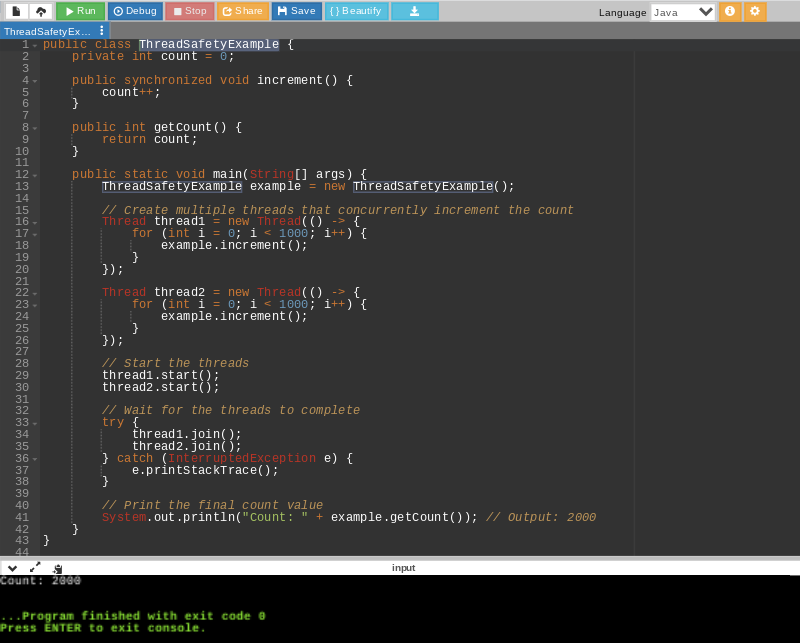Why Are Strings Immutable in Java? Finest Practices and Use Cases
Why Are Strings Immutable in Java? Finest Practices and Use Cases
Blog Article
What Is Unalterable Strings and Just How It Works
In the realm of programs, comprehending the principle of unalterable strings is paramount for creating safe and secure and durable applications. Immutable strings refer to strings that can not be changed after they are produced, making certain information integrity and predictability within the code. This fundamental concept plays a vital function in numerous programming languages and offers an unique approach to handling information. By discovering the ins and outs of just how unalterable strings operate, one can reveal a world of benefits and possibilities that can elevate the quality and performance of software advancement.
The Fundamentals of Unalterable Strings
Immutable strings, as an essential concept in programming, are character series that can not be altered once they are produced. This indicates that once a string is appointed a worth, that value can not be modified. In languages like Python and Java, strings are immutable items, bring about various effects in terms of memory administration and information stability.
One of the key advantages of unalterable strings is that they offer a feeling of security in information adjustment. Since the content of an immutable string can not be customized, it makes sure that the original information stays undamaged, minimizing the danger of unintentional modifications throughout program implementation (Why are strings immutable in Java?). This home likewise streamlines debugging procedures, as designers can trust that once a string is defined, its value will not be accidentally altered
Furthermore, immutable strings facilitate efficient memory usage. When a new string is developed based on an existing one, instead of changing the initial string, the new value is stored individually. This strategy boosts performance by minimizing memory fragmentation and simplifying memory allocation processes. Generally, comprehending the fundamentals of unalterable strings is crucial for understanding programming ideas and maximizing code effectiveness.
Benefits of Immutable Strings
Building upon the protection and effectiveness advantages of unalterable strings, their benefits extend to enhancing code integrity and streamlining concurrent programs jobs. By being immutable, strings can not be modified after production, which eliminates the threat of unintended modifications in the information they keep. This intrinsic immutability ensures that once a string is produced, its worth stays continuous throughout the program's implementation, reducing the chances of insects brought on by unexpected changes.
Additionally, immutable strings add to code integrity by making it much easier to reason concerning the state of a program. Because strings can not be transformed, designers can trust that a string will certainly constantly hold the same worth, simplifying debugging and upkeep efforts. This predictability results in much more reliable and secure codebases.

Implementation in Programs Languages
Within numerous programming languages, the incorporation of immutable strings is a basic aspect that affects exactly how information is browse around these guys dealt with and adjusted within code frameworks. The implementation of immutable strings varies throughout various shows languages, with each language providing its very own mechanisms to support this concept.

In contrast, languages like C and C++ do not have integrated support for immutable strings. Developers in these languages need to manually execute immutability by implementing regulations within their code to avoid direct adjustments to string items.
Finest Practices for Collaborating With Unalterable Strings
When taking care of immutable strings in programs languages like Java and Python, adhering to best practices ensures secure and reliable information manipulation. Among the crucial best techniques is to utilize StringBuilder or StringBuffer as opposed to you can check here straight manipulating strings, particularly when managing comprehensive concatenation operations. These classes offer mutable choices for string manipulation, aiding to prevent unneeded memory allotments and boosting performance.
In addition, when functioning with delicate information such as passwords or API secrets, it is crucial to avoid storing them as ordinary message in immutable strings. Using secure storage systems like char ranges or specialized collections for handling sensitive info assists mitigate safety threats associated with immutable strings.
Real-world Applications and Instances
Exploring useful executions of unalterable strings in various industries exposes their significant influence on information honesty and system reliability. In the medical care field, unalterable strings play an essential role in making certain the security and discretion of person information. By stopping unauthorized alterations to delicate information such as medical records and prescriptions, immutable strings help keep compliance with rigorous privacy policies like HIPAA.
Financial establishments additionally profit from the unalterable nature of strings to improve the protection of consumer information and purchase records. Unalterable strings assist prevent fraud and unapproved changes to financial information, providing a durable protection versus cyber risks and making sure the trust and confidence of customers.

Conclusion
Finally, immutable strings are fixed and stable series of personalities that provide advantages such as string safety and improved efficiency in programs. They are carried out in various shows languages to guarantee data integrity and safety and security. Finest practices for collaborating with unalterable strings consist of staying clear of straight adjustments and making use of approaches that return new string items. Real-world applications of immutable strings include information security, caching, and string control tasks.
Unalterable strings refer to strings that can not be modified after they are created, Home Page ensuring information integrity and predictability within the code. When a new string is produced based on an existing one, instead than changing the initial string, the brand-new worth is stored individually.In languages like Java and Python, strings are unalterable by default, suggesting that once a string object is developed, its value can not be altered - Why are strings immutable in Java?. Ideal methods for functioning with immutable strings include avoiding straight modifications and utilizing methods that return brand-new string items. Real-world applications of unalterable strings consist of information file encryption, caching, and string manipulation tasks
Report this page